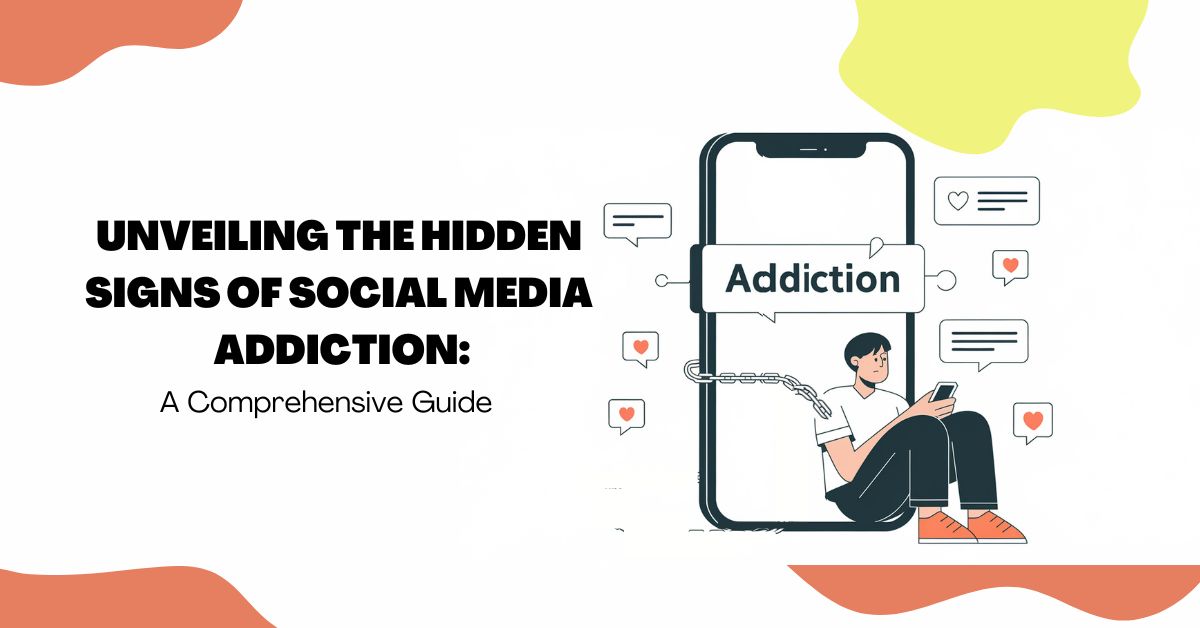Analyzing Social Media Addiction Symptoms: What You Need to Know
In an era where digital connectivity has become as essential as breathing, understanding the line between healthy use and obsession is crucial. Social media addiction, a growing concern worldwide, has substantial implications for mental and emotional well-being. This post aims to educate and raise awareness about social media addiction symptoms, helping individuals recognize the signs and take steps toward a healthier relationship with their online activities.
Understanding Social Media Addiction
Social media addiction is a behavioral dependency where individuals engage excessively with social media platforms, ultimately impacting their day-to-day lives. Unlike regular use, where social media serves as a tool for communication and information, addiction involves compulsive use despite negative consequences. Users often feel an overwhelming need to be online, akin to other recognized forms of addiction. For further insights on managing these behaviors, consider exploring our article on digital detox techniques.
Key Symptoms of Social Media Addiction
Identifying social media addiction symptoms is the first step in addressing the issue. Here are some of the most common signs:
Preoccupation with Social Media
One significant symptom is the constant urge and preoccupation with social media. Individuals might find themselves frequently checking their phones or computers, even when there is no significant activity to keep track of. Examples include consistent scrolling through feeds or waiting impatiently for notifications, which indicates an inability to disconnect mentally from social media platforms.
Inability to Reduce Use
Another telltale sign is the inability to cut back on social media use, despite wanting to. Many individuals try to set limits for themselves but find those boundaries challenging to maintain. This persistent usage, despite clear attempts and intentions to reduce time spent online, points towards a dependency that warrants attention.
Neglecting Personal Life
Social media can often overshadow personal responsibilities and real-life interactions. Individuals demonstrating neglect of personal relationships or tasks in favor of social media interaction exhibit signs of addiction. This symptom manifests in missed deadlines, ignored family or friends, and disengagement from face-to-face social activities.
Withdrawal Symptoms
Withdrawal is a classic symptom of addiction, and it manifests similarly in social media addiction. Feelings of anxiety, irritability, or restlessness when unable to access social media platforms are warning signs that one may be dependent. These feelings often drive individuals to seek immediate access, reaffirming the addictive quality of their relationship with social media.
Using Social Media to Escape Reality
In many cases, social media becomes a haven to escape from the harsh realities of life. When used as a primary means to avoid stress, problems, or real-world issues, it can signify an unhealthy dependency. This escapism can further entrench individuals in the digital world, causing the avoidance of necessary resolutions to their real-life issues.
Causes of Social Media Addiction
The root causes of social media addiction are multifaceted, often a combination of psychological, social, and environmental factors. Psychologically, the instant gratifications of likes, comments, and shares trigger dopamine releases similar to other addictive behaviors. Socially, the fear of missing out (FOMO) can drive individuals to overuse social media. Environmental factors, such as increased access to digital devices and societal acceptance of digital communication, create fertile ground for addiction to develop.
Impact of Social Media Addiction
The repercussions of social media addiction stretch beyond mental health, negatively impacting physical health, interpersonal relationships, and productivity. Mentally, addiction can lead to increased feelings of depression, anxiety, and loneliness. Physically, the excessive screen time associated with addiction can cause sleep disturbances, eye strain, and sedentary behavior. Social media addiction also disrupts personal and professional productivity, as it consumes time and attention that could be directed towards more constructive endeavors.
Diagnosis and Self-Assessment
Self-assessment is a critical step toward recognizing social media addiction symptoms. Reflect on your screen time, emotional responses when offline, and your ability to focus on tasks outside digital environments. Consider using self-assessment tools or quizzes that evaluate your relationship with social media to gain insight into your usage patterns and identify possible dependencies.
How to Address Social Media Addiction
Recognizing social media addiction symptoms is just the beginning; taking action to regain control is crucial. Here are some strategies to consider:
Set Time Limits
Implementing time restrictions on social media use can help alleviate compulsive behavior. Utilize screen time management apps and built-in settings on your devices to monitor and limit your usage.
Find Alternative Activities
Replacing social media with offline activities can divert your attention and energy into more fulfilling endeavors. Engaging in hobbies, reading, or exercising can provide the dopamine release social media offers without the negative consequences.
Digital Detox
A digital detox involves taking a break from digital devices to recalibrate your relationship with technology. The process can be gradual or immediate, depending on what suits your lifestyle. The benefits include improved focus, better sleep, and a newfound appreciation for direct human interaction.
Conclusion
To summarize, recognizing social media addiction symptoms involves understanding a pattern of preoccupation, withdrawal, failure to reduce use, and neglect of personal life. These signs point towards an urgent need for intervention to reclaim balance and well-being. It is essential to acknowledge the severity of the issue and take proactive steps to address it. We encourage you to share your experiences or seek professional help if needed, as recognizing and working through social media addiction is a crucial step toward healthier digital habits.
Additional Resources
For further exploration of related topics, you may find valuable information on mental health support websites and articles dedicated to digital wellness. These resources can provide additional guidance and support in addressing social media addiction symptoms comprehensively.







